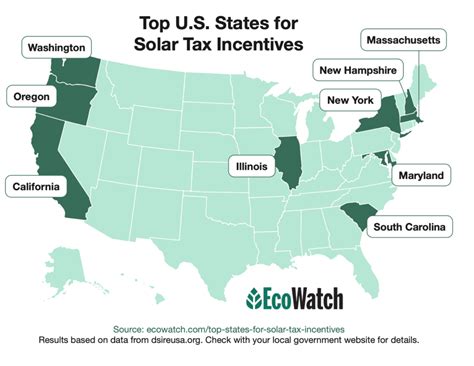As energy costs continue to rise, homeowners and businesses alike are looking for ways to save money while also contributing to a sustainable future. Florida offers a variety of energy rebates that can help alleviate the financial burden of energy-efficient upgrades. Whether you’re considering a new air conditioning system or solar panels, understanding Florida’s energy rebate programs can unlock significant savings for your household or business.
What Are Energy Rebates?
Energy rebates are financial incentives provided by state governments, utility companies, and other organizations to encourage energy-efficient practices. These rebates can significantly reduce the upfront costs of energy improvements, making it more feasible for homeowners and businesses to invest in energy-efficient technologies.
Types of Energy Rebates Available in Florida
1. Residential Energy Rebates
The Florida Power & Light Company (FPL) offers numerous incentives for residential customers. This includes rebates for solar water heaters, air conditioning systems, attic insulation, and energy-efficient appliances. For instance, you may receive a rebate of up to $1,200 for installing a qualifying solar water heater, while HVAC systems can offer rebates ranging between $50 to $1,000.
2. Commercial Energy Rebates
Businesses in Florida can also take advantage of energy rebates. Utility companies often offer incentives for upgrading to energy-efficient lighting, HVAC systems, and insulation. For example, FPL has a Business Energy Evaluator program that can help identify opportunities for energy savings and corresponding rebates.
3. Solar Energy Rebates
With Florida being one of the sunniest states in the U.S., solar energy rebates are particularly popular. The Florida Solar and Energy Conservation Act (FSEC) allows for a property tax exemption for solar energy systems. Additionally, residential solar power users can benefit from a federal tax credit that allows them to deduct a percentage of the cost of installing a solar energy system from their federal taxes.
How to Qualify for Rebates
Qualifying for energy rebates typically involves a few straightforward steps:
- Purchase Eligible Equipment: Ensure that the equipment or system you intend to install meets the criteria outlined by the rebate program.
- Documentation: Keep all receipts and necessary documentation related to your purchase and installation, as you’ll need these for any rebate application.
- Application Process: Complete the required application form, which can usually be found on the utility company’s website or the respective rebate program’s portal.
- Installation Quality: Ensure that your installation is completed by a certified professional, as many rebate programs require this to ensure the equipment’s performance and safety.
Steps to Maximize Your Savings
To take full advantage of Florida’s energy rebates, consider the following tips:
- Research Thoroughly: Familiarize yourself with the different programs available in your area. Various utilities have distinct offers that may vary in terms of amounts and eligibility.
- Consult with Experts: Seek assistance from energy auditors or contractors who are knowledgeable about these programs. They can provide valuable insights and suggest the best energy-efficient options for your needs.
- Combine Rebates: Look for opportunities to stack different rebates. For instance, if you’re installing solar panels, check if your local utility offers additional rebates in conjunction with federal tax credits.
- Stay Informed: Rebates can change over time. Regularly checking utility websites helps you stay updated on the latest available offers and program requirements.
Challenges and Considerations
While energy rebates present excellent savings opportunities, there are some challenges to keep in mind:
- Complex Requirements: Each rebate program may have specific eligibility criteria that can be confusing. Ensuring you meet these requirements is crucial for receiving the rebate.
- Application Delays: Depending on the program, the application process can take some time. Be prepared for potential delays in receiving your rebate.
- Upfront Costs: Although rebates help with costs, there is often an upfront investment needed. It’s important to weigh these costs against potential long-term savings.
Conclusion
Florida’s energy rebate programs offer a valuable opportunity for residents and businesses to save substantial amounts on energy-related upgrades. By understanding the different types of rebates available, the qualification processes, and best practices for maximizing savings, you can play a significant role in fostering energy efficiency within your community. The journey towards a more sustainable future is not only beneficial for the environment but also rewarding financially.
FAQs
1. How do I find out what rebates I qualify for?
Check with your local utility provider and visit their website to view available rebate programs and eligibility criteria. Additionally, energy audit services can provide personalized advice.
2. Are there deadlines for energy rebate applications?
Yes, many rebate programs have specific application deadlines. It’s essential to submit your application as soon as possible after installation to ensure you meet any necessary timelines.
3. Can I claim rebates for projects already completed?
Typically, rebates are available only for new installations. However, some programs may offer incentives for upgrades if they meet the program’s requirements. Always check the specific conditions of the rebate.
4. Is there a limit on how much I can receive through rebates?
Yes, most programs have a maximum rebate amount per appliance or upgrade. Review the specific program details for limits.
5. Do energy rebates affect my taxes?
Some rebates may be considered taxable income. It’s advisable to consult a tax professional to understand the implications of your savings on your tax return.
This HTML document is ready to be inserted into a WordPress post editor in HTML mode. Each section is properly formatted for readability and navigation.
Download State Of Florida Energy Rebates
